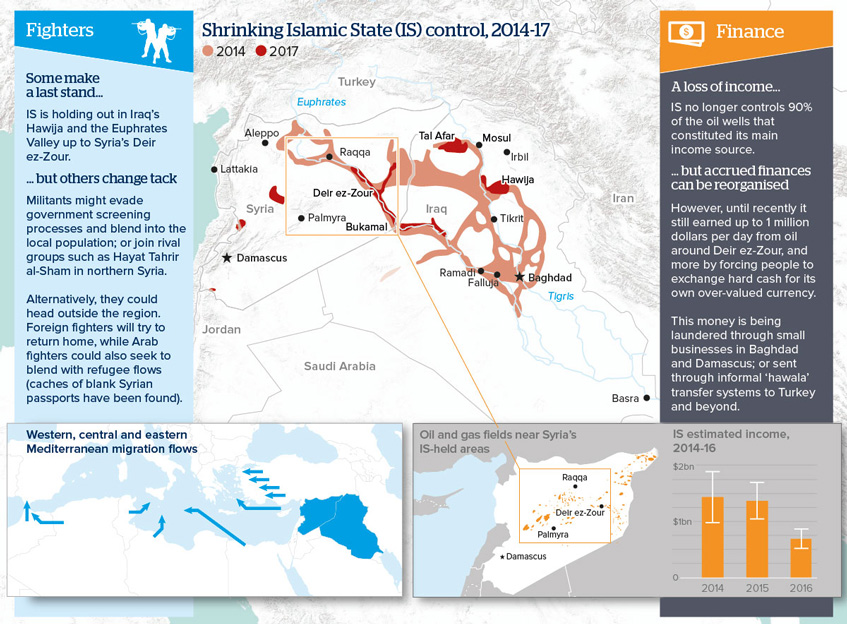Islamic State will prepare for the next phase
As the salafi-jihadist group loses its territorial ‘caliphate’ in Syria and Iraq, it is redeploying fighters and funds
Source: Institute for the Study of War; European Commission; International Centre for the Study of Radicalisation; US Energy Information Administration; Syrian Government Statistical Abstract; media reports
Outlook
IS will switch increasing attention to terrorist attacks, seeking to build up the mystique of a ‘lost caliphate’. In the Middle East, repeated suicide bomb attacks could undermine efforts to restore governance in Syria and Iraq. North Africa and Yemen will also remain important areas of operations.
However, there will be a renewed focus outside the region. The group is increasing its non-Arabic propaganda output and calling for global attacks. The informal ‘hawala’ money transfer system and easy availability of false Syrian passports will assist it in redeploying its resources.
Impacts
- Flawed screening systems in Iraq may alienate Sunni young men with no prior IS affiliation.
- International efforts to control the ‘hawala’ system could disrupt vital remittances and raise costs for small businesses.
- If IS’s ‘digital caliphate’ fails to establish credibility, other salafi-jihadist groups such as al-Qaida could return to the fore.
See also
- Local rivalries may destabilise the Syria-Iraq border - Nov 3, 2017
- IS threat will persist after territorial losses - Oct 10, 2017
- Islamic State will draw on Syrian Sunni grievances - Oct 5, 2017
- Mosul loss could transform global jihadi terrorism - Nov 30, 2016
- More graphic analysis
